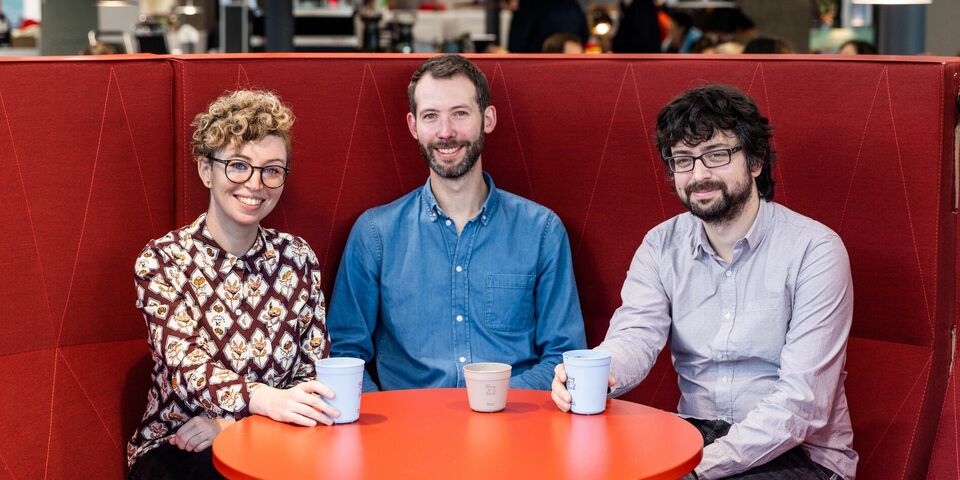Embarking on a new adventure with a huge European grant
Francesca Grisoni, Maarten Schoukens and Ruud van Sloun are all assistant professors at TU/e and the most recent recipients of an ERC Starting Grant. The three young, talented researchers at TU/e are recipients of an ERC Starting Grant. This personal grant will allow them to shape their own research over the next five years.
Francesca Grisoni aims to rethink AI for drug discovery. Ruud van Sloun thinks he’s found a novel way of training AI to improve ultrasound imaging. And Maarten Schoukens plans to combine data-driven and physics based systems & control modelling to develop new, hybrid data-driven models. An interview with the three brand new grantees.
ERC Starting Grants are personal grants of 1.5 million euros for high risk - high gain fundamental research for a period of five years. The recipients of these grants are young, because applying for the grant can only be done within two to seven years after obtaining a PhD. The procedures are strict, the success percentages low, the competition high and the application period limited. Not only the impact of the research but also the impact of receiving an ERC grant on young scientists is big.
The studies
Systems and control engineering is a broad field that sits at the intersection of mechanical engineering, mathematics & computer science, and electrical engineering. Schoukens focuses on this field. “There are multiple ways to approach modeling dynamic systems. On the one hand you can make a model based on physics – that requires very detailed knowledge, and some effects may be hard to describe using only physical insights. On the other hand you can estimate a model based on the acquired data of a system. Such models have a more nebulous connection with the underlying physical reality of the system, but may be excellent at modeling effects that are harder to describe,” clarifies Schoukens.
Grisoni's research proposal focuses on methods used for drug (medicine) discovery. There is the conventional trial and error method where drugs are synthesized based on what we know about the drug and the receptors in the body that need to interact with it. Grisoni intends to travel another path and improve the way Deep Learning and AI technology is used to discover new drugs.
Artificial intelligence (AI) is already being used in many ways to improve quality of medical imaging (e.g., MRI, X-ray and ultrasound). In particular, improving the image quality of ultrasound can make affordable and reliable medical imaging accessible around the world, thanks to the (relatively) low cost of an ultrasound machine compared to, say, an MRI system. “I think an important piece of the puzzle is missing right now", Van Sloun says. "That piece would help us to get so much more out of ultrasound imaging. We know from neuroscience that the human brain actively gathers information through the perception-action loop. We observe the world around us and use these perceptions to create a model of the world in our heads. This is what is known as perception."
Want to know more? The full story is to be found on the news site of the TU/e.


Discussion